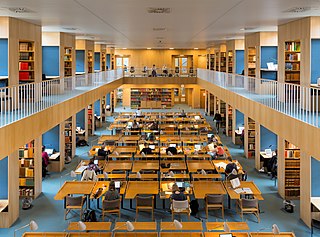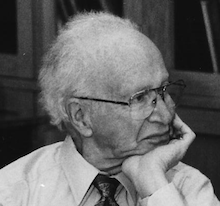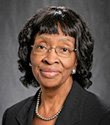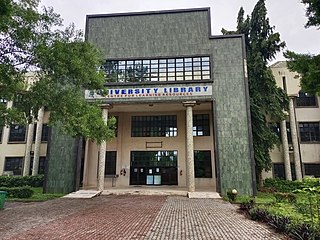Related Research Articles

A library is a collection of books, and possibly other materials and media, that is accessible for use by its members and members of allied institutions. Libraries provide physical or digital materials, and may be a physical location, a virtual space, or both. A library's collection normally includes printed materials which may be borrowed, and usually also includes a reference section of publications which may only be utilized inside the premises. Resources such as commercial releases of films, television programmes, other video recordings, radio, music and audio recordings may be available in many formats. These include DVDs, Blu-rays, CDs, cassettes, or other applicable formats such as microform. They may also provide access to information, music or other content held on bibliographic databases.

A librarian is a person who works professionally in a library providing access to information, and sometimes social or technical programming, or instruction on information literacy to users.
The Association of College and Research Libraries defines information literacy as a "set of integrated abilities encompassing the reflective discovery of information, the understanding of how information is produced and valued and the use of information in creating new knowledge and participating ethically in communities of learning". In the United Kingdom, the Chartered Institute of Library and Information Professionals' definition also makes reference to knowing both "when" and "why" information is needed.
The American Library Association (ALA) is a nonprofit organization based in the United States that promotes libraries and library education internationally. It is the oldest and largest library association in the world, with 49,705 members as of 2022.
Library collection development is the process of systematically building the collection of a particular library to meet the information needs of the library users in a timely and economical manner using information resources locally held as well as resources from other organizations. "According to is a dynamic self perpetuation cycle or process and consists six definable stages namely,community analysis, selection policies, selection, acquisition, weeding and evaluation.
Michael Gorman is a British-born librarian, library scholar and editor/writer on library issues noted for his traditional views. During his tenure as president of the American Library Association (ALA), he was vocal in his opinions on a range of subjects, notably technology and education. He currently lives in the Chicago area with his wife, Anne Reuland, an academic administrator at Loyola University.
The Master of Library and Information Science (MLIS), also referred to as the Master of Library and Information Studies, is the master's degree that is required for most professional librarian positions in the United States. The MLIS is a relatively recent degree; an older and still common degree designation for librarians to acquire is the Master of Library Science (MLS), or Master of Science in Library Science (MSLS) degree. According to the American Library Association (ALA), "The master’s degree in library and information studies is frequently referred to as the MLS; however, ALA-accredited degrees have various names such as Master of Information Studies, Master of Arts, Master of Librarianship, Master of Library and Information Studies, or Master of Science. The degree name is determined by the program. The [ALA] Committee for Accreditation evaluates programs based on their adherence to the Standards for Accreditation of Master's Programs in Library and Information Studies, not based on the name of the degree."

A school library is a library within a school where students, staff, and often, parents of a public or private school have access to a variety of resources. The goal of the school library media center is to ensure that all members of the school community have equitable access "to books and reading, to information, and to information technology." A school library media center "uses all types of media... is automated, and utilizes the Internet [as well as books] for information gathering." School libraries are distinct from public libraries because they serve as "learner-oriented laboratories which support, extend, and individualize the school's curriculum... A school library serves as the center and coordinating agency for all material used in the school."

An Academic Library is a library that is attached to a higher education institution and serves two complementary purposes: to support the curriculum and the research of the university faculty and students. It is unknown how many academic libraries there are worldwide. An academic and research portal maintained by UNESCO links to 3,785 libraries. According to the National Center for Education Statistics, there are an estimated 3,700 academic libraries in the United States. In the past, the material for class readings, intended to supplement lectures as prescribed by the instructor, has been called reserves. Previously before the electronic appliances became available, the reserves were supplied as actual books or as photocopies of appropriate journal articles. Modern academic libraries generally also provide access to electronic resources.
Library instruction, also called bibliographic instruction, user education and library orientation, consists of "instructional programs designed to teach library users how to locate the information they need quickly and effectively. [It] usually covers the library's system of organizing materials, the structure of the literature of the field, research methodologies appropriate to the academic discipline, and specific resources and finding tools " It prepares individuals to make immediate and lifelong use of information effectively by teaching the concepts and logic of information access and evaluation, and by fostering information independence and critical thinking. Above all they are aimed at equipping library users with skills to locate library sources and use them effectively to satisfy their information needs.

Evan Ira Farber was Faculty Emeritus and former Head Librarian at Earlham College. Throughout his career, he was active with the American Library Association (ALA) and the Association of College and Research Libraries (ACRL), holding positions that included Chair of the ACRL College Library Section from 1968 to 1969 and President of the ACRL from 1978 to 1979. He was also active with the ACRL College Leadership Committee and the ACRL College Libraries Mentor Program.

James G. Neal is an American librarian, library administrator, and a prominent figure in American and international library associations. In 2022 President Joe Biden appointed him to the National Museum and Library Services Board which advises the agency on general policies with respect to the duties, powers, and authority of the Institute of Museum and Library Services relating to museum, library, and information services, as well as the annual selection of the National Medal for Museum and Library Service.
The Association of College and Research Libraries (ACRL), a division of the American Library Association, is a professional association of academic librarians and other interested individuals. It is dedicated to enhancing the ability of academic library and information professionals to serve the information needs of the higher education community and to improving learning, teaching, and research. The association serves librarians in all types of academic libraries at the community college, college, and university level and also serves librarians that work in comprehensive and specialized research libraries.
Music librarianship is the area of librarianship that pertains to music collections and their development, cataloging, preservation and maintenance, as well as reference issues connected with musical works and music literature. Music librarians often have degrees in both music and librarianship. Music librarians deal with standard librarianship duties such as cataloging and reference, which become more complicated when music scores and recordings are involved. Therefore, music librarians generally read music and have at least a basic understanding of both music theory and music history to aid in their duties.
A pathfinder is a bibliography created to help begin research in a particular topic or subject area.. Pathfinders produced by the Library of Congress are known as "tracer bullets". What is special about a pathfinder is that it only refers to the information in a specific location, i.e. the shelves of a local library.

Learning commons, also known as scholars' commons, information commons or digital commons, are learning spaces, similar to libraries and classrooms that share space for information technology, remote or online education, tutoring, collaboration, content creation, meetings, socialization, playing games and studying. Learning commons are increasingly popular in academic and research libraries, and some public and school libraries have now adopted the model. Architecture, furnishings and physical organization are particularly important to the character of a learning commons, as spaces are often designed to be rearranged by users according to their needs.

The Catalog of Digital Historical Newspapers (NewspaperCat) is a free online resource for open-access digitized historical newspapers published in North America and the Caribbean. NewspaperCat was developed from a grant by the George A. Smathers Libraries at the University of Florida and is powered by SobekCM, the content management system used by the University of Florida Digital Collections.

Dr. Vicki L. Gregory is professor emeritus at the School of Information at the University of South Florida (USF). She and was director of the School from 1999 until 2007. Her fields of specialization include: academic libraries, digital librarianship, technical services, information science, library networking, library automation, and collection development. Prior to teaching at USF Dr. Gregory was Director of Systems and Operations for the Auburn University at Montgomery Library. She is currently President of Beta Phi Mu. She was Treasurer for the Association for Information Science and Technology (ASIS&T) and the winner of the 2014 Watson Davis Award. She is also the author, co-author, or editor of seven books and has published numerous articles.

Alma Dawson is an American scholar of librarianship. She retired as Russell B. Long Professor at the School of Library & Information Science, Louisiana State University in 2014 and was awarded Emeritus status in 2015. In 2019 Dr. Dawson was honored with the Essae Martha Culver Distinguished Service Award from the Louisiana Library Association which honors a librarian whose professional service and achievements, whose leadership in Louisiana association work, and whose lifetime accomplishments in a field of librarianship within the state merit recognition of particular value to Louisiana librarianship.

Covenant University Library, also known as Centre for Learning Resources (CLR), is the library of Covenant University in Ota, Ogun State, Nigeria. It is housed in a three-story glass building with a seating capacity of 3,500.
References
- ↑ Reitz, Joan M. "ODLIS Online Dictionary for Library and Information Science". Web. Retrieved 5 August 2011.
- 1 2 3 4 5 6 Gandhi, Smiti. "Academic Librarianship and Distance Education: Challenges and Opportunities." Reference & User Services Quarterly 43.2. Winter 2003: 139-152. Library, Information Science & Technology Abstracts. Web. 16 Jul. 2011
- 1 2 3 4 5 "Standards for Distance Learning Library Services". Association of College and Research Libraries. Retrieved 4 August 2011.
- 1 2 3 Farkas, Meredith. "A Day in the Life of a Distance Learning Librarian". Web. Wordpress. Retrieved 21 July 2011.
- 1 2 3 4 Wyss, Paul (Jun 2008). "Getting Started as Distance Learning Librarian". College Student Journal. 42 (2): 440–448.